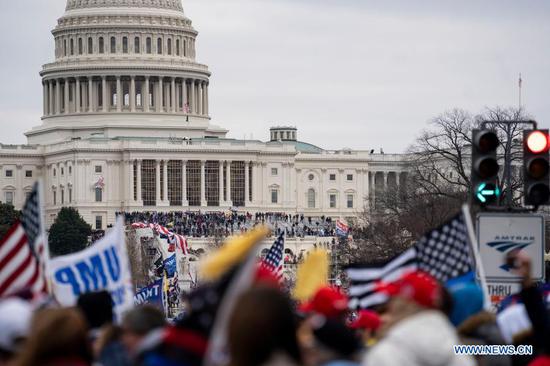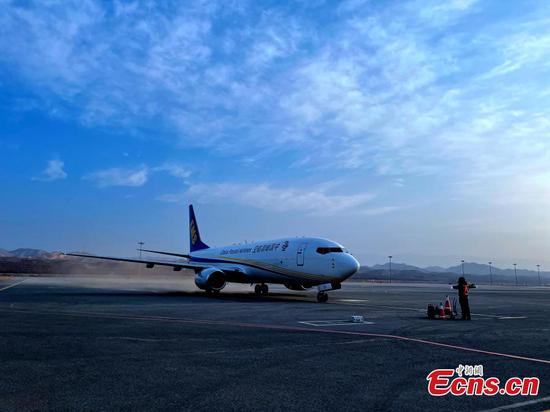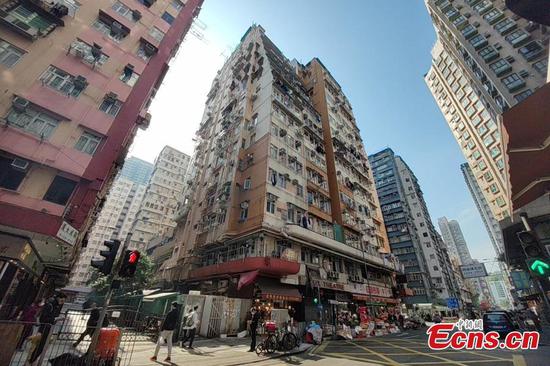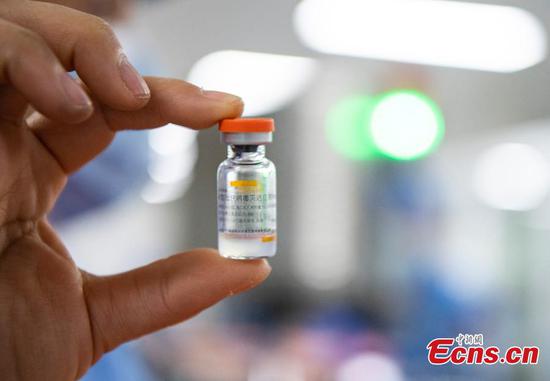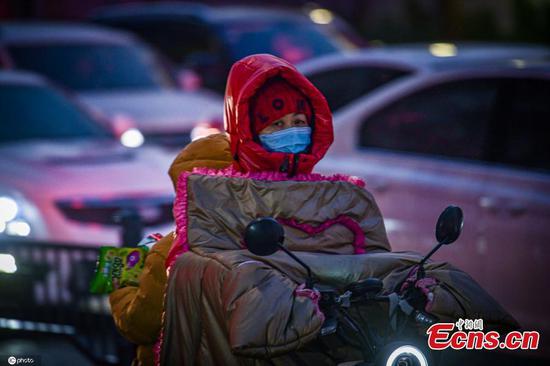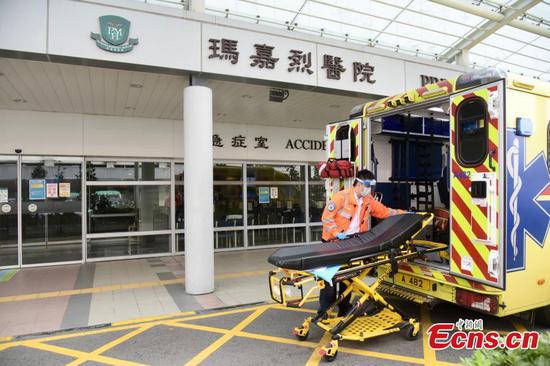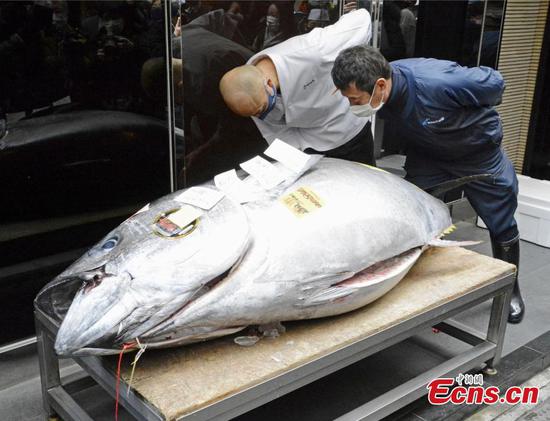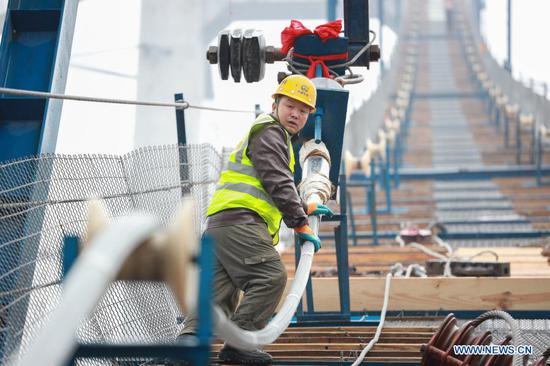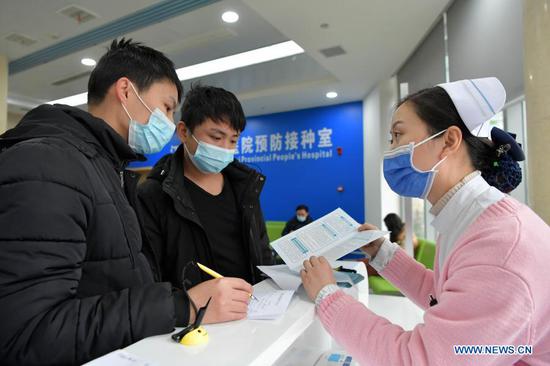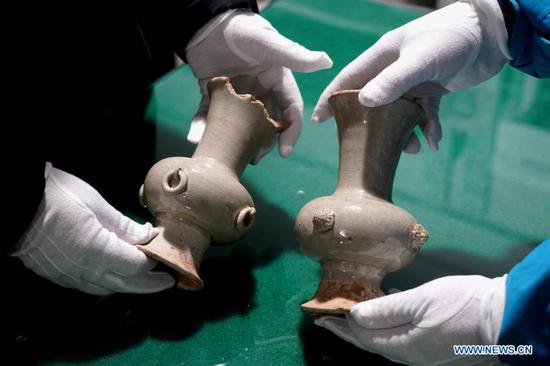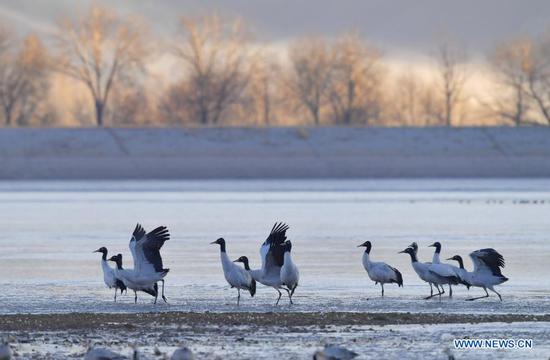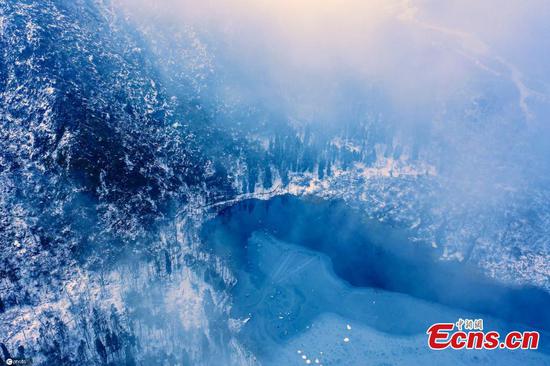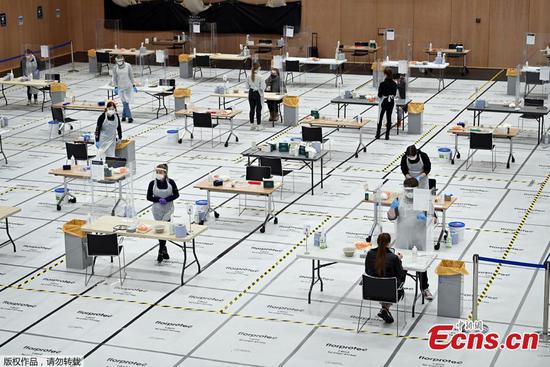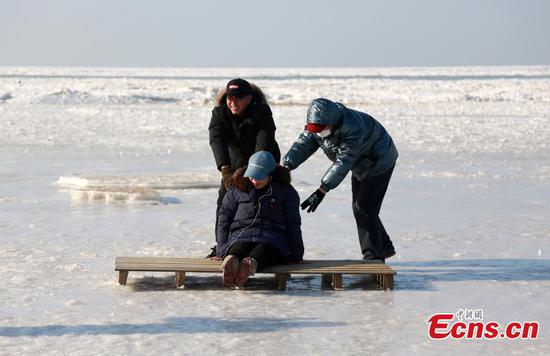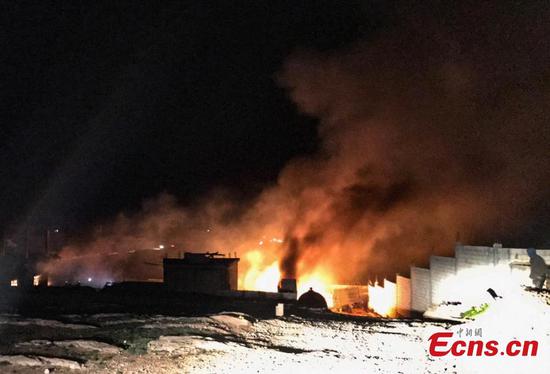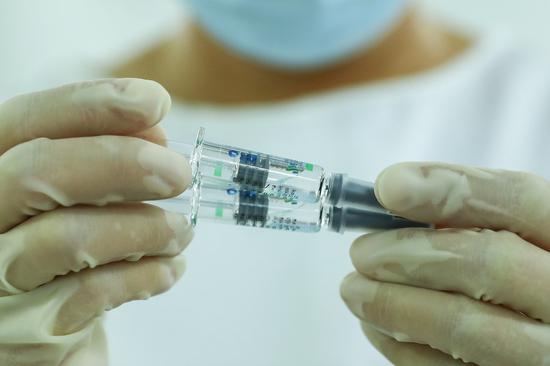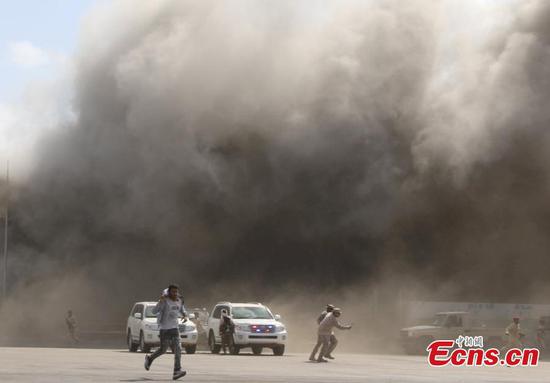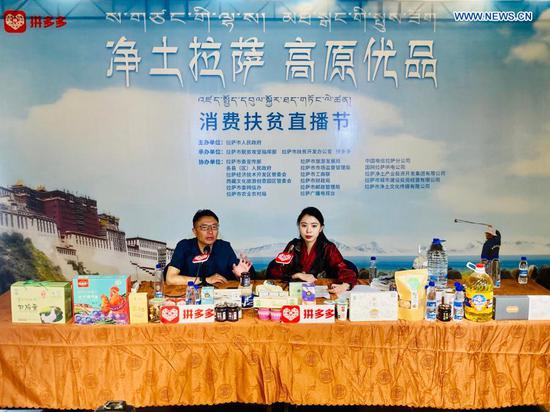Japanese Prime Minister Yoshihide Suga on Thursday declared a state of emergency for Tokyo and three neighboring prefectures in a bid to combat a recent surge in novel coronavirus cases.
The emergency declaration, which comes into effect From Friday and will be kept in place until Feb. 7, along with the capital, also covers Kanagawa, Saitama and Chiba prefectures.
Under the state of emergency, people in the affected areas will be asked to refrain from making unnecessary trips outdoors, especially after 8 p.m., and restaurants and bars requested to stop serving alcohol by 7 p.m. and close by 8 p.m.
The government will provide financial support for bars and restaurants complying with the request to close early and those that don't will be "named and shamed."
Japan's second emergency declaration for the Greater Tokyo area comes as the capital city of 14 million on Thursday reported a record 2,447 new COVID-19 cases, far surpassing the previous record of 1,591 cases recorded the previous day.
Along with Tokyo, Kanagawa, Chiba and Saitama also reported record daily infections.
Daily COVID-19 cases nationwide, meanwhile, topped the 7,000-mark for the first time on Thursday, hitting 7,570 new infections and eclipsing the previous day's record of 6,004 cases.
The recent surge in cases has underscored fears that the virus is continuing to spread rampantly across the country, particularly in urban areas where medical facilities are becoming increasingly strained, with experts warning they could buckle if the virus' spread continues unabated.
"The rapid spread of COVID-19 across the country has created a situation that could have a serious impact on people's lives and the economy. Therefore, I hereby declare a state of emergency based on the anti-virus law," Suga said at a press conference.
"I am certain we can beat this. But to do so, we have to ask everyone to live with some restrictions. I will do everything in my power to improve the situation in one month," the Japanese leader said.
Under the declaration companies will be asked to encourage their staff to work remotely and reduce the number of people in their offices by 70 percent.
The number of spectators at live events, meanwhile, will be limited to half of the venues' capacity and capped at 5,000 people.
Schools will not be asked to close during the emergency period and Education Minister Koichi Hagiuda has said that January's university entrance exams, that have seen more than 530,000 people apply to sit, will go ahead as planned.
The decision for the prime minister to issue the emergency declaration came after a meeting of the government's COVID-19 response task force who had taken advice from an advisory panel of experts on infectious diseases and public health, as well as economic and legal experts.
Along with saying the government hopes to start coronavirus vaccinations by late next month, Suga also said he's determined to hold the postponed Tokyo Olympic and Paralympic Games in the summer in a "safe and secure" manner.
Along with the Greater Tokyo area, other regions have also been hard hit by a recent surge in virus cases, with the prefecture of Osaka reporting 607 cases and the prefecture of Aichi confirming 431 new infections, both hitting new records.
Osaka Gov. Hirofumi Yoshimura said he now intends to ask the central government to expand the state of emergency to cover Osaka, while Aichi Gov. Hideaki Omura said if the worrying trend in rising infections continues for a few more days, he will do the same.
Suga said that expanding the scope of the virus emergency is not necessary at this juncture.
Hiroshi Nishiura, a professor at Kyoto University specializing in mathematical modeling for infectious diseases, however, on Wednesday told a meeting of health experts advising the government it will take about two months for the daily number of new infections in Tokyo to fall below 100.
Shigeru Omi, head of a government subcommittee on the pandemic, meanwhile, was quoted as saying it would be an "extremely difficult feat to improve the situation to a state where the state of emergency could be lifted in less than one month."
Toshio Nakagawa, president of the Japan Medical Association, said recently the government should look into the possibility of expanding the declaration nationwide.
"Depending on how the virus spreads, we may have to consider a nationwide state of emergency," Nakagawa said.
Prior to the state of emergency being declared, the government rolled out a near complete blanket ban on entries to Japan in late December, with new visa applications being halted.
The government has said it may also suspend the entry of business people and students from some countries that had been given eased restrictions.
This is in a bid to ensure more cases of the new, highly transmissible virus variant do not enter the country, government sources have said.
Health officials have said they have detected at least 25 cases of the new coronavirus strain in Japan.
The previous state of emergency was declared in April last year in Tokyo and six other prefectures before being expanded nationwide and then lifted incrementally in May.
The legislation giving the government the authority to declare a state of emergency was enacted a month earlier.
The legislation provides a legal basis for governors to ask residents in their prefectures to stay at home and also enables stronger steps to deal with outbreaks, including the requisition of medical supplies and food, as well as the expropriation of private land for emergency health facilities.
But the legislation does not provide a legal basis for imposing a lockdown with restrictions on the movement of people, or fines for those who leave their homes, as has been seen in numerous countries' lockdowns overseas.
As things stand, there are currently no penalties for people or establishments who fail to comply with the new measures set out, although Suga has said the government will, by proposing a legal revision this month, try to change this.
Suga said earlier in the week a legal revision aimed at providing benefits for those who comply with anti-virus measures, such as complying with earlier closing times, and penalties for those who do not conform, will be sought in a parliamentary session to be convened later in January.
As the Diet affairs chiefs of the ruling Liberal Democratic Party and the main opposition Constitutional Democratic Party of Japan agreed on the plan, the amendment is expected to be approved by lawmakers in early February.










